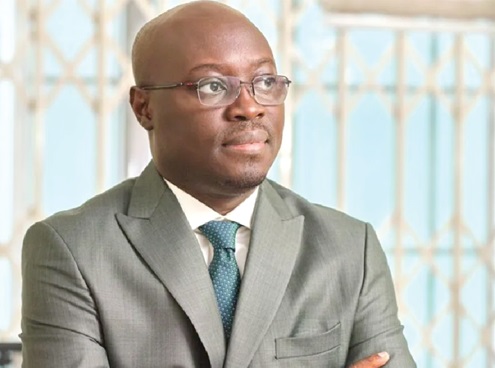
Ato Forson trial: Government’s delay affected specifications - Businessman tells court
The businessman charged alongside the Minority Leader, Dr Cassiel Ato Forson, for allegedly causing financial loss of €2.37 million to the state in an ambulance deal, has told the Accra High Court that the delayed production of the ambulances affected the specifications of the vehicle.
Reading his witness statement in open court, Mr Richard Jakpa explained that the delay also affected the delivery time. He attributed the delay to the Ministry of Health’s (MoH) failure to carry out a pre-shipment inspection, as well as the Ministry of Finance’s failure to raise the letter of credit on time.
Correspondents
It is the case of the prosecution that as the local representative of Big Sea and knowing that Big Sea had not shipped, Mr Jakpa still arranged with his principal to supply the purported ambulances and contracted Big Sea to charge a commission of 28.5 per cent on the proceeds of the supply of the vehicles purported to be ambulances to the state.
![]()
One of the alleged defective ambulances
While insisting that as an agent representing Big Sea, the company, the prosecution claims, supplied “unfit” ambulances to the state, the third accused person said, “Government also refused to respond to at least 26 different correspondences which were sent to the MoH during the manufacturing process of the first 30 ambulances requesting for pre-delivery inspection by the technical team, but no responses came from Ghana's MOH”,
Reacting to the prosecution’s claim that the government discovered that the ambulances were defective after a post-delivery inspection, Mr Jakpa told the court that the issue of post-delivery inspection of the first 10 vehicles was not a term of the contract.
He added that the contract only made a mandatory provision for pre-shipment inspection by the government of which, the government) waived its right. Explaining further, he said the main issue of concern to the government after the post-delivery inspection was the absence of the medical equipment that was supposed to be in the ambulances.
To buttress his point, he made reference to the former Chief Director of the MoH’s letter which stated that a post-delivery inspection of the first 10 ambulances revealed that they were delivered without equipment.
Following that, he added that Big Sea had affirmed its commitment to rectifying the issues observed in the ambulances delivered.
“The prosecution acknowledged in their narration of the facts to the court that myself and the MOH drew Big Sea's attention to the defects and Big Sea acknowledged them and promised to rectify them,” he told the court presided over by Justice Afia Serwah Asare-Botwe.
He further told the court that even after the government pointed out the so-called defects, the government still committed itself to the contract for the purchase of the ambulances.
Again, he pointed out the testimony of the prosecution’s witness before the court to the effect that after admitting the so-called defects, Big Sea shipped all the medical equipment to the MoH.
After the shipment, he said the government wanted JBL to pay and clear them from the port because the government did not have a budget for it.
Reacting to the specific charge against him, he said JBL committed no offence for insisting that its principal (Big Sea) pay its commission for its agency duties to its principal.
“Further, in all the evidence adduced by the prosecution in the court, the prosecution did not adduce any scintilla of evidence to support its contention that JBL caused the shipment of the ambulances to Ghana by Big Sea which was already bound by contract to deliver the ambulances to the government by ensuring their shipment to Ghana,” he added.
Not guilty
Mr Jakpa and the Minority Leader have been accused of causing a financial loss of €2.37 million to the state in a deal to purchase 200 ambulances for the country between 2014 and 2016.
They have pleaded not guilty to counts of wilfully causing financial loss to the state, abetment to wilfully causing financial loss to the state, contravention of the Public Procurement Act and intentionally misapplying public property.
